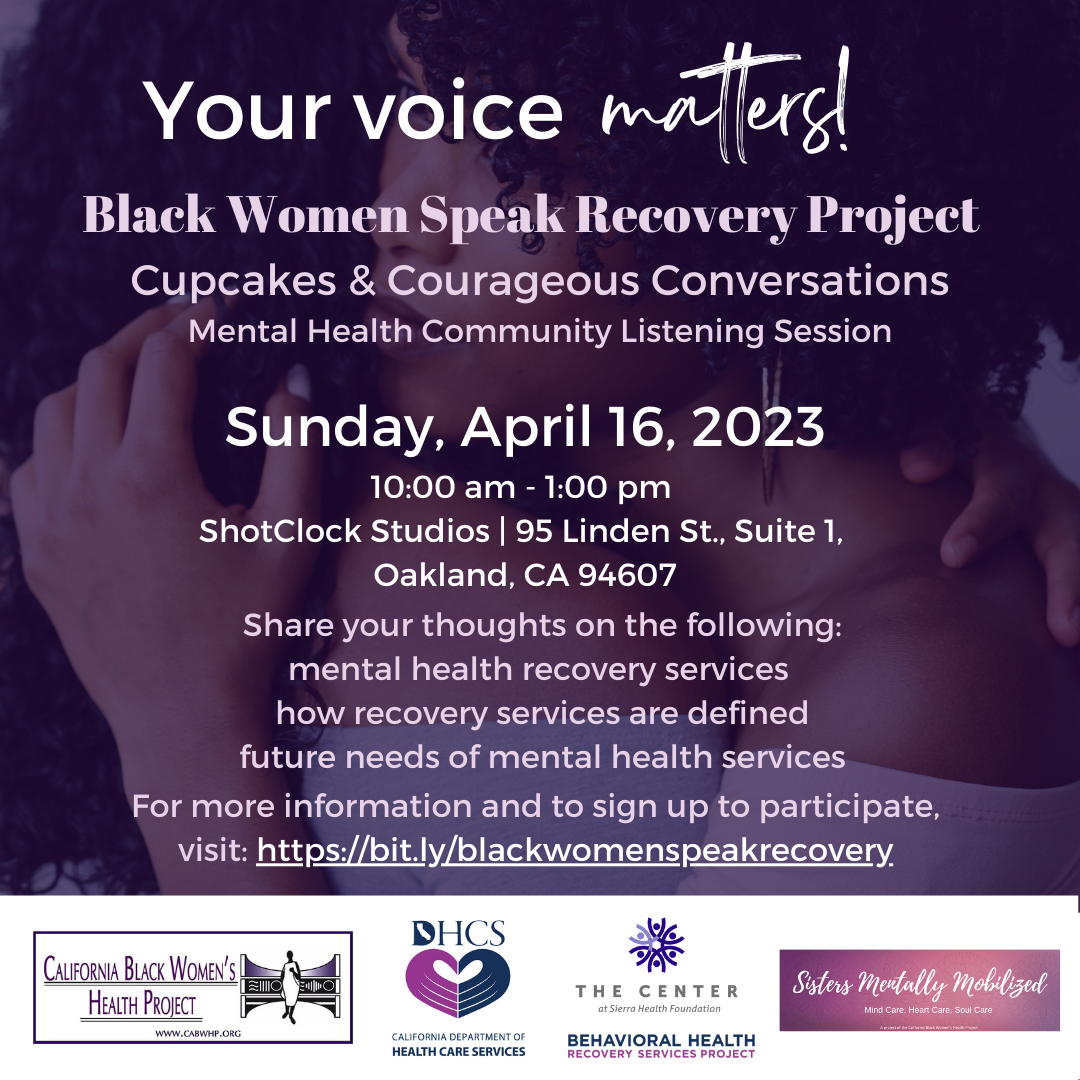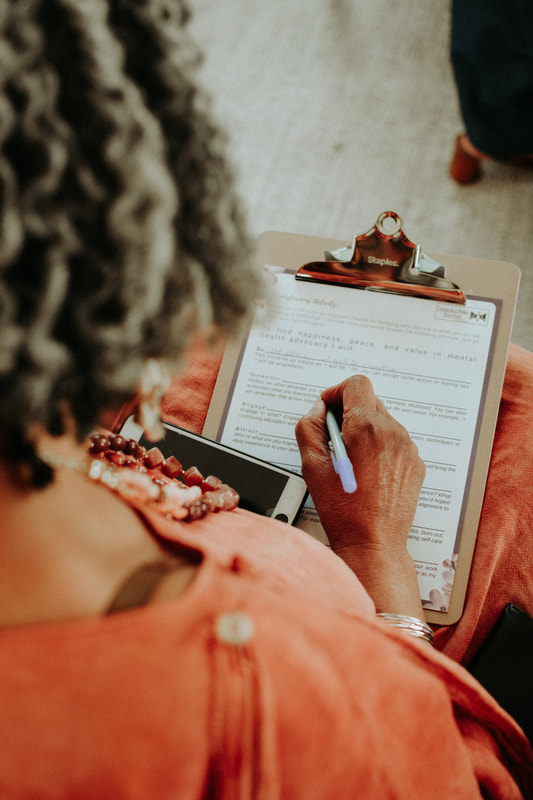Black Women Speak Recovery Project
"Black Women Speak Recovery" is a part of the Behavioral Health Recovery Services Project, which aims to increase the quality of culturally responsive mental health recovery services and programs throughout California.
The purpose of these community listening sessions, "Cupcakes & Courageous Conversations," is to engage in a community-driven process that will inform "standards of care" that build on the Substance Abuse and Mental Health Administration (SAMSHA) guidance for recovery services. California Black Women's Health Project (CABWHP) is committed to advocating for policies and practices that promote and improve mental health. We believe a healthier future is possible. Black women's participation in this community listening session will assist us in addressing gaps in mental health recovery services and resources intended to help Black women. The Health Equity in Access to Behavioral Health Recovery Services (HEAR US) Phase 1 funding opportunity is provided by The California Department of Health Care Services, with support from The Center as its administrative entity.
The purpose of these community listening sessions, "Cupcakes & Courageous Conversations," is to engage in a community-driven process that will inform "standards of care" that build on the Substance Abuse and Mental Health Administration (SAMSHA) guidance for recovery services. California Black Women's Health Project (CABWHP) is committed to advocating for policies and practices that promote and improve mental health. We believe a healthier future is possible. Black women's participation in this community listening session will assist us in addressing gaps in mental health recovery services and resources intended to help Black women. The Health Equity in Access to Behavioral Health Recovery Services (HEAR US) Phase 1 funding opportunity is provided by The California Department of Health Care Services, with support from The Center as its administrative entity.
Gen-Z Speaks Wellness Partners
Sisters Mentally Mobilized Sacramento Engagement Project
ACTIVITES
In 2020, we set out to leverage statewide, countywide, and local partnerships, networks, and coalitions targeting Black women to enable us to reach out to Black women and provide mental, physical, and community health education, empowerment, and support resources. Our Sisters Mentally Mobilized Sacramento Engagement Project interventions employed multiple strategies: training and education providing mental health literacy and awareness, community to combat isolation and give peer support, advocacy for public interest and policy change, and collective impact through collaboration with other community organizations. Our engagement model is a community-defined evidence practice infused with culture and cultural elements as tools for healing Black women and girls. Outreach and education efforts included digital communication, social media, hosted events, trainings, radio, town- halls, community forums, and more. Our nationally recognized evidenced-based Sister Circle engagement model is the primary community outreach and community capacity- building tool used by CABWHP.
TOTAL SERVED
Over the 2-year project term, we achieved improvements in critical measures of mental and emotional wellness that act as barriers to the harmful effects and adverse experiences associated with the following:
•Increased identification of mental health symptoms and risk factors that lead to or are exacerbated by unemployment and incarceration
•Prevention of early onset and reduction of mental health illness severity associated with prolonged suffering for Black women and girls
•Reduced mental health stigma
•Increased access and utilization of mental health services and care
•Reduction in social isolation among older Black women that contributes to declining health and potential removal of our aging Sisters from their homes
•Increased identification of mental health symptoms and risk factors that lead to or are exacerbated by unemployment and incarceration
•Prevention of early onset and reduction of mental health illness severity associated with prolonged suffering for Black women and girls
•Reduced mental health stigma
•Increased access and utilization of mental health services and care
•Reduction in social isolation among older Black women that contributes to declining health and potential removal of our aging Sisters from their homes

















